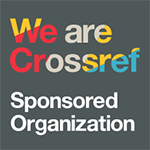Information and communication environment as a resource and tool for foreign language education of specialists
DOI:
https://doi.org/10.33408/2519-237X.2022.6-2.248Keywords:
linguistic education, computerization, authenticity, Internet resources, distance learning of foreign languages, communicative competence, virtual learning environmentAbstract
Purpose. To highlight the resource and methodological aspects of modern information and communication technologies for foreign language education of specialists. To reveal the prospects and problems of teaching foreign language communication in modern conditions of the dominant Internet while maintaining traditional approaches to teaching a foreign language.
Methods. Critical analysis of theoretical sources on the implementation of information and communication technologies in the pedagogical process. Generalization of the practical experience of foreign language education of workers in the field of life safety and students of the University of Civil Protection.
Findings. The resource and methodological advantages of modern information and communication systems and technologies used to form and develop the foreign language communicative competence of specialists, in particular the technology of distance teaching in the elements of English communication of rescue service workers, are revealed. The recommendations are given on the most effective methodological use of modern tools and resources necessary for the linguistic education of specialists in the field of life safety.
Application field of research. Information and communication support of the pedagogical process of teaching communication, including foreign language. Methodology and practice of teaching intercultural communication, taking into account the modern level of information technology.
References
Kovaleva T.G., Dement'eva T.G. Sovremennye tekhnologii inoyazychnogo obrazovaniya spetsialistov v sfere bezopasnosti zhiznedeyatel'nosti [State-of-the-art technologies of foreign language education of specialists in the sphere of life safety]. Journal of Civil Protection, 2021. Vol. 5, No. 2. Pp. 251–260. (rus). DOI: https://www.doi.org/10.33408/2519-237X.2021.5-2.251. EDN: https://www.elibrary.ru/DOHRVE.
Bespal'ko V.P. Obrazovanie i obuchenie s uchastiem komp'yuterov (pedagogika tret'ego tysyacheletiya) [Education and learning with the participation of computers (pedagogy of the third millennium)]. Moscow: Moscow Psychological and Social Institute; Voronezh: MODEK, 2002. 348 p. (rus)
Zubov Aleksander, Hajczuk Roman, Szymila Robert. Ot uchebnoy programmy – k komp'yuternoy programme obucheniya yazykam [From education program to computer technology of teaching languages]: Białystok: Wydawnictwo Uniwersytetu w Białymstoku, 2014. 148 p. (rus)
Potapova R.K. Novye informatsionnye tekhnologii i lingvistika [New information technologies and linguistics]: tutorial. Moscow: Lenland, 2016. 368 p. (rus)
Dalidchik E.G. nteraktivnye tekhnologii kak sposob formirovaniya kriticheskogo myshleniya. Proc. XXII Intern. scientific-practical. conf. of Teachers, Postgraduates, Undergraduates, Students «Idei. Poiski. Resheniya», Minsk, October 26, 2018. In 7 vols. Vol. 3. Minsk: Belarusian State University, 2018. Pp. 15–20. (rus). URI: http://elib.bsu.by/handle/123456789/209283.
Shakirova Yu.K., Savchenko N.K., Abildaeva G.B., Zhdanovich E.I. Mobil'noe obuchenie kak innovatsionnaya tekhnologiya v obrazovatel'nom protsesse [Mobile learning as an innovative technology in the educational process]. Distantsionnoe i virtual'noe obuchenie, 2018. No. 3. (123). Pp. 123–128.
Erchak N.T. Inostrannye yazyki: psikhologiya usvoeniya [Foreign languages: psychology of assimilation: study guide]: tutorial. – Minsk: Novoe znanie; Moscow: INFRA-M, 2013. 336 p.
Published
How to Cite
License
Copyright (c) 2022 Kovaleva T.G., Dement'eva T.G.

This work is licensed under a Creative Commons Attribution-NonCommercial 4.0 International License.




















